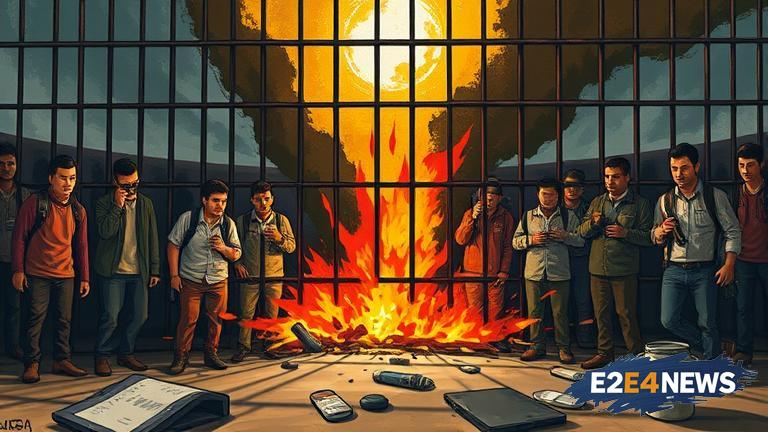The recent deportation of hundreds of Colombian inmates from Ecuador has sparked a diplomatic crisis between the two countries. The move, which was carried out by the Ecuadorian government, has been met with strong opposition from Colombia, with the country’s authorities crying foul. According to reports, the deported inmates were sent back to Colombia without prior notice, leaving many of them stranded and without access to basic necessities. The Ecuadorian government has defended its decision, citing concerns over national security and the need to protect its citizens from foreign criminals. However, Colombia has argued that the deportation was carried out in violation of international law and without proper coordination with its authorities. The crisis has highlighted the complex and often tense relationship between Ecuador and Colombia, with both countries having a long history of border disputes and diplomatic tensions. The deportation has also raised concerns about the treatment of prisoners and the need for greater cooperation between countries in the region to address issues related to crime and security. Ecuador has a large prison population, with many of its inmates being foreigners, and the government has been under pressure to take action to address the issue. The deportation of the Colombian inmates is seen as a move to reduce the number of foreign prisoners in Ecuador’s jails and to alleviate pressure on the country’s prison system. However, the move has been criticized by human rights groups, who argue that it violates the rights of the prisoners and puts them at risk of violence and exploitation. The crisis has also sparked a diplomatic row between the two countries, with Colombia’s government accusing Ecuador of violating international law and Ecuador’s government defending its actions as necessary to protect its citizens. The situation remains tense, with both countries engaging in a war of words and neither side showing any signs of backing down. The deportation has also raised questions about the role of international organizations, such as the United Nations, in mediating the crisis and promoting greater cooperation between countries in the region. As the situation continues to unfold, it remains to be seen how the crisis will be resolved and what impact it will have on the relationship between Ecuador and Colombia. The crisis has also highlighted the need for greater cooperation and coordination between countries in the region to address issues related to crime, security, and human rights. In the meantime, the deported inmates remain in a state of limbo, with many of them struggling to access basic necessities and facing an uncertain future. The Ecuadorian government has announced plans to deport more foreign prisoners in the coming weeks, which is likely to further escalate the crisis and raise tensions with Colombia.
